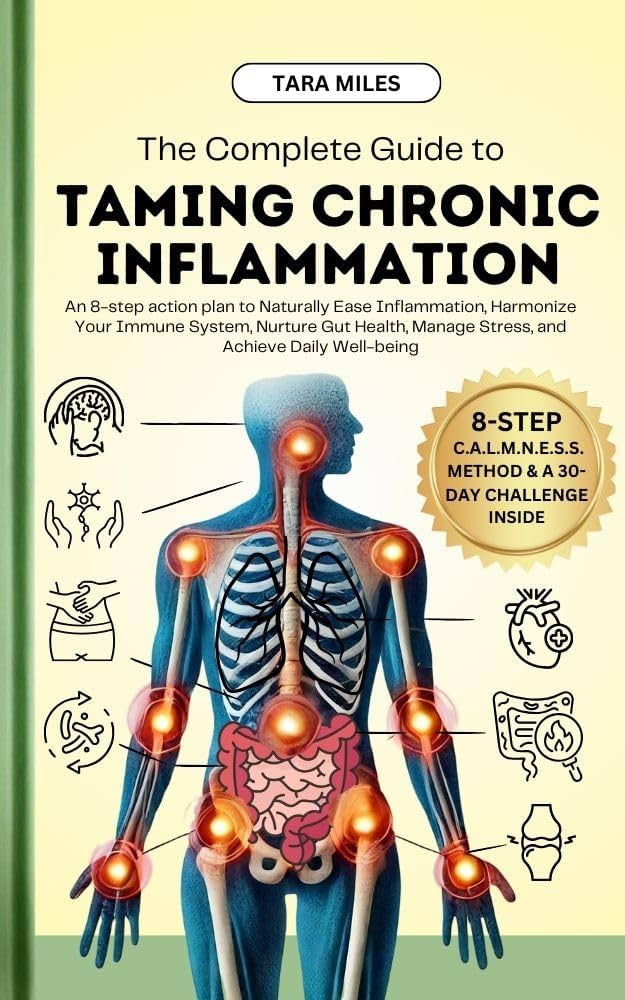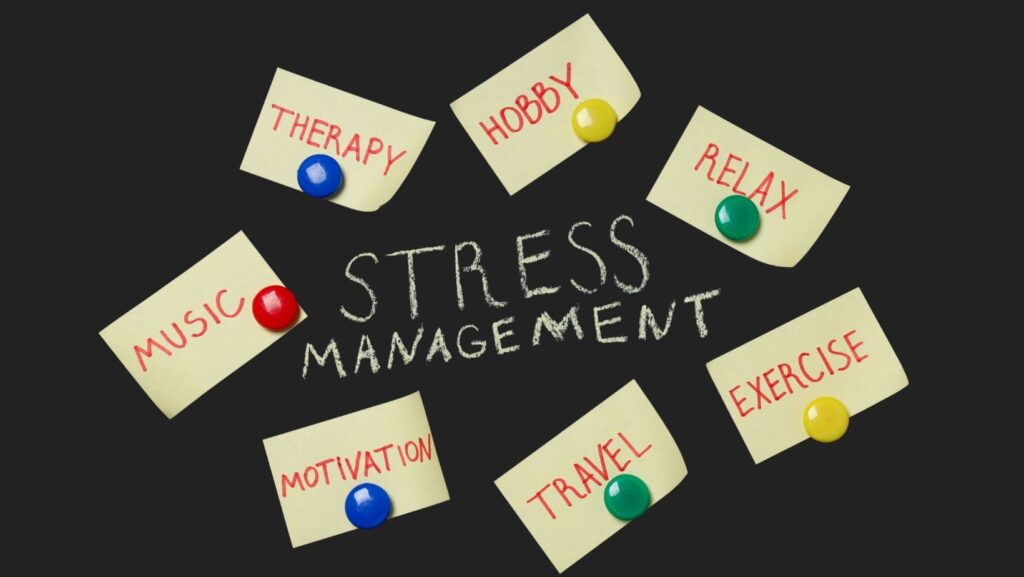
Blog
Chronic stress affects many people today. It can impact health and well-being.
Managing stress naturally can offer relief and balance. Many look for ways to ease stress without medicine. Natural methods can help restore calm and improve life quality. These techniques focus on mind and body harmony. They promote healthier living and stress reduction.
Understanding stress is key to managing it. Chronic stress differs from short-term stress. It lingers and can harm health over time. Natural stress management methods aim to reduce tension. They encourage relaxation and mindfulness. These practices can lead to a more peaceful life. Whether through lifestyle changes or simple daily habits, natural ways can provide effective stress relief. Explore these options to find what works best for you.

Credit: www.linkedin.com
Introduction To Chronic Stress
Chronic stress is a constant feeling of pressure and worry. It occurs over a long period and can impact daily life. Unlike temporary stress, chronic stress does not go away on its own. It requires attention and management to prevent health issues. Understanding its causes and effects is crucial for managing it effectively.
Impact On Health
Chronic stress can affect the body in many ways. It may lead to headaches, fatigue, and sleep problems. Over time, it can weaken the immune system. This makes the body more vulnerable to illness. Stress can also affect mental health. Feelings of anxiety and depression may increase. Managing stress is essential for maintaining overall health.
Common Causes
Many factors contribute to chronic stress. Work pressure and financial worries are common causes. Relationship issues can also lead to stress. Personal health problems may increase stress levels. Daily challenges, like commuting, can add to stress. Identifying these causes is the first step to managing stress. Understanding what triggers stress helps in finding effective solutions.
Mindfulness Practices
Chronic stress can weigh heavily on the mind and body. Finding natural ways to manage stress is essential for maintaining overall well-being. Mindfulness practices are powerful tools that help us stay present. They encourage us to focus on the moment, reducing stress and anxiety. These practices can be simple and accessible, making them ideal for daily use.
Meditation Techniques
Meditation is a time-honored practice that calms the mind. Start with a few minutes each day. Sit in a quiet space. Close your eyes and focus on your breathing. Let thoughts come and go without judgment. Guided meditation apps can be helpful. They provide structure and support for beginners. Try different types to find what suits you best. Regular practice improves focus and reduces stress.
Breathing Exercises
Breathing exercises are effective stress relievers. Deep breathing soothes the nervous system. Start with slow, deep breaths. Inhale through the nose, hold for a few seconds, then exhale through the mouth. Feel the tension leaving your body with each breath. Box breathing is another method. Inhale for four counts, hold for four, exhale for four, then pause for four. Repeat several times. These exercises are easy and can be done anywhere.
Physical Activities For Stress Relief
Managing chronic stress naturally can transform your daily life. Physical activities offer a holistic approach to stress relief. Engaging in regular exercise helps regulate stress hormones. It also enhances mood and boosts energy levels. Embrace the joy of movement to calm your mind and body. Here are some effective physical activities for stress relief.
Benefits Of Yoga
Yoga integrates mind and body, promoting relaxation. Stretching and breathing exercises reduce tension. Practicing yoga improves flexibility and strength. It also lowers stress levels and anxiety. Regular yoga sessions enhance mental clarity. Experience tranquility and inner peace through gentle poses.
Outdoor Exercise
Outdoor exercise connects you with nature. Fresh air invigorates the senses. Walking in a park or hiking a trail reduces stress. Sunshine boosts mood and energy. Outdoor activities foster a sense of freedom. Enjoy the beauty of nature and relieve stress simultaneously.
Nutritional Approaches
Chronic stress takes a toll on the body and mind. Nutritional approaches offer a natural way to manage stress levels. Certain foods and hydration play key roles. Eating the right foods helps boost mood and energy. Staying hydrated supports brain function and reduces stress. Let’s dive into stress-busting foods and the importance of hydration.
Stress-busting Foods
Some foods naturally reduce stress. Nuts, for example, are rich in healthy fats. They help improve brain health and mood. Dark chocolate is another stress reliever. It lowers stress hormones in the body. Leafy greens like spinach are packed with magnesium. Magnesium helps relax muscles and calm nerves. Adding these foods to your diet can make a difference.
Hydration Importance
Water is essential for good health. Proper hydration supports brain function and reduces stress. Even mild dehydration affects mood and concentration. Drinking enough water helps keep stress levels in check. Aim for at least eight glasses of water daily. Herbal teas like chamomile and peppermint are good choices too. They promote relaxation and hydration.
Herbal Remedies
Herbal remedies provide natural ways to manage chronic stress. Chamomile and lavender can soothe nerves and promote relaxation. Valerian root helps improve sleep quality, aiding stress relief.
Chronic stress can feel overwhelming, but nature offers solutions that can help soothe your mind and body. Herbal remedies have been used for centuries to support mental health and well-being. Whether you’re seeking relaxation or a sense of calm, herbs can provide gentle, natural relief. Let’s explore some popular herbs for relaxation and the use of essential oils to manage stress.
Popular Herbs For Relaxation
Certain herbs are renowned for their calming effects. Chamomile is a favorite, often enjoyed as a tea before bedtime to promote restful sleep. Its mild sedative properties can help ease tension after a long day. Lavender is another powerful herb known for its ability to reduce anxiety. You might find that sipping lavender-infused tea or using lavender sachets can help you unwind. Have you heard of Ashwagandha? It’s gaining popularity for its adaptogenic properties, helping the body manage stress more effectively. Adding a daily supplement or enjoying it as a powder in smoothies might enhance your resilience to stress.
Essential Oils Use
The aromatic power of essential oils can transform your stress management routine. Lavender oil, when diffused in your living space, creates a calming atmosphere. A few drops on your pillow can also promote better sleep. Peppermint oil is invigorating and can help with mental clarity. If you feel overwhelmed, inhaling its scent might provide a refreshing boost. Consider creating a personal blend with Bergamot and Frankincense. This combination can uplift your mood while encouraging relaxation. You can apply it as a diluted mix on your wrists or add it to a warm bath. Have you tried using essential oils yet? Their simplicity and effectiveness might surprise you. Start small, and see which scents resonate with you most. As you explore these herbal remedies, think about how they fit into your daily routine. Could a cup of chamomile tea or a few drops of lavender oil be your next step toward stress relief? Nature’s solutions are at your fingertips—embrace them and feel the difference.

Credit: www.amazon.com
Sleep And Stress Management
Chronic stress affects millions around the world. Managing it naturally can improve well-being. One crucial factor in stress management is sleep. Sleep not only restores the body but also calms the mind. Poor sleep can worsen stress, creating a vicious cycle. Understanding how to improve sleep can help manage stress better.
Improving Sleep Hygiene
Good sleep hygiene involves habits that promote restful sleep. Set a regular sleep schedule. Go to bed and wake up at the same time daily. This routine helps regulate your body’s clock. Avoid screens at least an hour before bedtime. The blue light from devices can disrupt sleep. Create a calming bedtime ritual. Read a book or listen to soothing music. Keep your bedroom cool, dark, and quiet. A comfortable environment aids better sleep.
Relaxation Techniques
Relaxation techniques can help reduce stress and improve sleep. Deep breathing is a simple yet powerful method. Inhale deeply, hold for a few seconds, then exhale slowly. Repeat for a few minutes. This calms the mind and body. Progressive muscle relaxation involves tensing and relaxing muscles. Start from your toes and work up to your head. This practice releases tension, promoting relaxation. Guided imagery is another helpful technique. Visualize peaceful scenes or places. It distracts the mind from stress, aiding restful sleep.
Social Connections And Support
Chronic stress can wear you down over time. Social connections can offer relief. Having supportive people around makes life’s challenges easier. Sharing feelings with others reduces stress.
Building A Support Network
Start by reaching out to family and friends. They know you well and can offer comfort. Make time to meet regularly. These moments strengthen bonds and reduce anxiety. Sharing experiences can bring joy and lessen worries.
Join groups that share your interests. These groups provide a sense of belonging. Meeting people with similar hobbies can be refreshing. It opens doors to new friendships and support.
Community Activities
Participate in local events. Community activities offer a chance to connect. Volunteer for causes you care about. Helping others brings a sense of fulfillment. It creates positive connections and boosts mood.
Attend workshops or classes. Learning with others fosters camaraderie. It can be a fun way to meet new people. These activities build a supportive network naturally.

Credit: www.thegrangegrouppractice.co.uk
Time Management Strategies
Managing chronic stress can feel like an uphill battle, but effective time management strategies can help you regain control. When you organize your day efficiently, you not only reduce stress but also improve your overall productivity. Let’s look at some practical ways to manage your time better to keep chronic stress in check.
Prioritizing Tasks
Are you juggling too many tasks and feeling overwhelmed? Start by identifying what truly matters. Make a list of your tasks and rank them by importance.
Think about what absolutely needs to be done today and what can wait. Use tools like to-do lists or apps that can help you focus on high-priority tasks first.
Consider a personal example: I once spent hours on emails that weren’t urgent, which left me scrambling to complete a critical project. By prioritizing, I now handle important tasks first, keeping stress levels in check.
Setting Boundaries
It’s easy to say yes to everything, but setting boundaries is crucial for managing stress. When you take on too much, you spread yourself thin and increase stress.
Communicate clearly with colleagues and loved ones about your limits. Learn to say no when necessary and don’t feel guilty about it.
Have you ever felt drained because you said yes to a task you didn’t have time for? Setting boundaries helps you focus on what really matters, preserving your energy for essential activities.
Effective time management requires deliberate effort, but the rewards are significant. What strategies will you try to improve your time management today?
Creative Outlets
Creative outlets are powerful tools for managing chronic stress. Engaging in artistic activities helps channel emotions into positive experiences. Creativity allows the mind to relax and refocus. It offers a break from daily stressors and promotes mental well-being.
Artistic Expression
Artistic expression is a wonderful way to relieve stress. Drawing, painting, or sculpting can be therapeutic. These activities give a chance to express feelings without words. Art lets individuals explore their emotions in a safe space. It also boosts mood and enhances mindfulness. Even simple doodling can provide stress relief. Creating art encourages self-reflection and emotional release.
Music And Dance
Music and dance are natural stress reducers. Listening to calming music soothes the mind. It helps lower anxiety levels and improves concentration. Dancing is a fun and energetic way to cope with stress. It releases endorphins and lifts spirits. Moving to music allows freedom and joy. Both music and dance increase relaxation and reduce tension. They enable a connection between body and soul.
Conclusion And Long-term Benefits
Understanding how to manage chronic stress naturally can transform lives. It not only alleviates immediate stress but also lays the foundation for long-term health benefits. Embracing these natural methods provides a holistic approach to stress management. It ensures a balance in both mental and physical health.
Sustaining Stress Relief
Regular practice of natural stress management techniques helps sustain relief. Techniques like meditation, yoga, and deep breathing calm the mind. They reduce stress hormones and promote relaxation. Consistent use keeps stress at manageable levels. It prevents stress from overwhelming your daily life. Establish a routine to practice these techniques every day.
Incorporate physical activities like walking or stretching. They release endorphins, which are natural stress fighters. Over time, these activities build resilience against stress. They make you feel more in control and less reactive to stress triggers.
Improving Overall Well-being
Natural stress management significantly boosts overall well-being. It improves mood, increases energy levels, and enhances focus. These benefits extend beyond just stress relief. They contribute to better health and happiness. Engaging in these practices leads to a healthier lifestyle.
Good sleep, balanced diet, and regular exercise complement stress management techniques. They work together to strengthen both the body and mind. This holistic approach ensures long-term benefits. Over time, it helps create a more fulfilling and balanced life.
Frequently Asked Questions
How To Get Rid Of Chronic Stress Naturally?
Practice mindfulness meditation and deep breathing exercises daily. Engage in regular physical activities like walking or yoga. Maintain a balanced diet rich in fruits and vegetables. Prioritize quality sleep and establish a consistent sleep schedule. Connect with supportive friends or family for emotional support.
How To Reset Your Body After Chronic Stress?
Reset your body after chronic stress by practicing mindfulness, exercising regularly, eating balanced meals, and prioritizing sleep. Consider meditation or yoga to enhance relaxation. Stay hydrated and maintain social connections to boost mental well-being.
What Is The Best Natural Remedy For Stress?
Meditation is a top natural remedy for stress. It calms the mind and enhances emotional well-being. Regular practice reduces anxiety and promotes relaxation. Breathing exercises, yoga, and herbal teas like chamomile also help manage stress effectively. Incorporate these into daily routines for optimal results.
How To Cope With Constant Stress?
Practice deep breathing and meditation daily to reduce stress. Exercise regularly to improve mood and health. Prioritize sleep and maintain a balanced diet. Set realistic goals and manage time efficiently. Seek support from friends or professionals when needed.
Conclusion
Managing stress naturally can improve your overall well-being. Small changes make a big difference. Try meditation and deep breathing. Regular exercise helps reduce stress levels. Eating balanced meals supports a healthy mind. Sleep is crucial for stress management. Connect with friends and family for support.
Nature walks offer calm and relaxation. Remember, consistency is key to managing stress. Practice these methods regularly for best results. Stay patient and be kind to yourself. You’re not alone in this journey. Take one step at a time. Your health and happiness are worth the effort.
Keep going.
Contents
- 1 Introduction To Chronic Stress
- 2 Mindfulness Practices
- 3 Physical Activities For Stress Relief
- 4 Nutritional Approaches
- 5 Herbal Remedies
- 6 Sleep And Stress Management
- 7 Social Connections And Support
- 8 Time Management Strategies
- 9 Creative Outlets
- 10 Conclusion And Long-term Benefits
- 11 Frequently Asked Questions
- 12 Conclusion
Related posts
How Fast Does CBD Cream 5000mg Work on Sore Muscles?
Menthol and CBD: A Dynamic Duo for Pain Relief
Delta-8 vs Delta-9 THC: Which One Is Right for You?
CBD Cream 5000mg: Powerful Relief for Pain, Muscles & Joints
CBD for Arthritis Pain: What You Should Know
CBD Creams: Made with Hemp Oil for Pain Relief & Joint Support
Understanding Oral CBD vs Topical CBD: Which Works Best for You?
How CBD Cream Supports Your Body’s Natural Balance
CBD Cream for Arthritis Joint Pain: A Natural Way to Find Relief
Is CBD Cream the Secret to Glowing, Healthy Skin?
How CBD Cream Works on Your Skin
CBD Cream Costs: Finding the Perfect Balance Between Price and Quality
Table Of Contents
- 1 Introduction To Chronic Stress
- 2 Mindfulness Practices
- 3 Physical Activities For Stress Relief
- 4 Nutritional Approaches
- 5 Herbal Remedies
- 6 Sleep And Stress Management
- 7 Social Connections And Support
- 8 Time Management Strategies
- 9 Creative Outlets
- 10 Conclusion And Long-term Benefits
- 11 Frequently Asked Questions
- 12 Conclusion
Recent Posts
Products
-
 CBD Cream 5000mg – Extra Strength Pain Relief Topical Rated 4.83 out of 5$33.93 – $49.99Price range: $33.93 through $49.99 — or subscribe and save up to 25%
CBD Cream 5000mg – Extra Strength Pain Relief Topical Rated 4.83 out of 5$33.93 – $49.99Price range: $33.93 through $49.99 — or subscribe and save up to 25% -
 CBD Sleep Gummies 2500mg With Melatonin - 100 count Rated 5.00 out of 5
CBD Sleep Gummies 2500mg With Melatonin - 100 count Rated 5.00 out of 5$69.99Original price was: $69.99.$34.99Current price is: $34.99. -
 3000mg CBD Oil Rated 5.00 out of 5$29.90
3000mg CBD Oil Rated 5.00 out of 5$29.90 -
 CBD Gummies 500 mg - 21 Gummies Rated 5.00 out of 5$19.90 – $23.00Price range: $19.90 through $23.00
CBD Gummies 500 mg - 21 Gummies Rated 5.00 out of 5$19.90 – $23.00Price range: $19.90 through $23.00



















